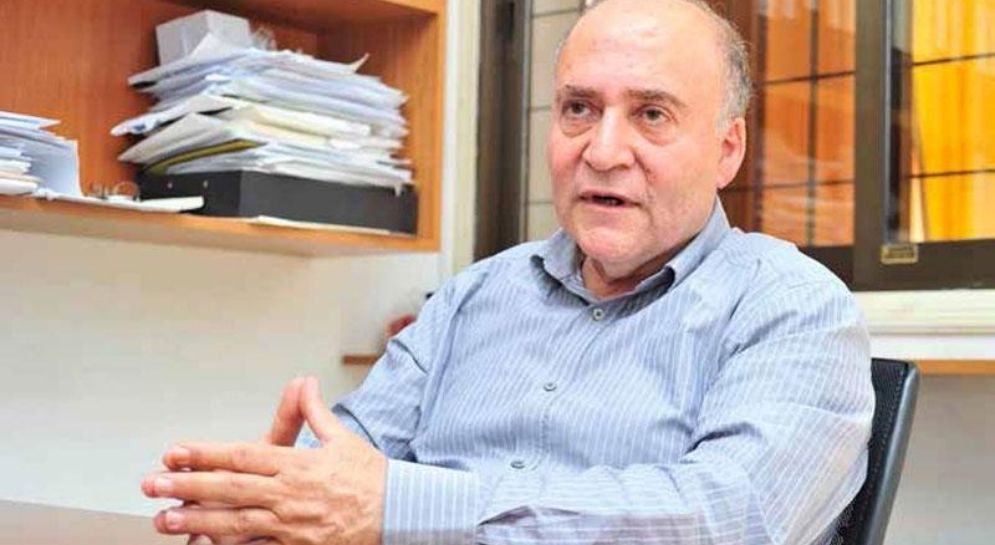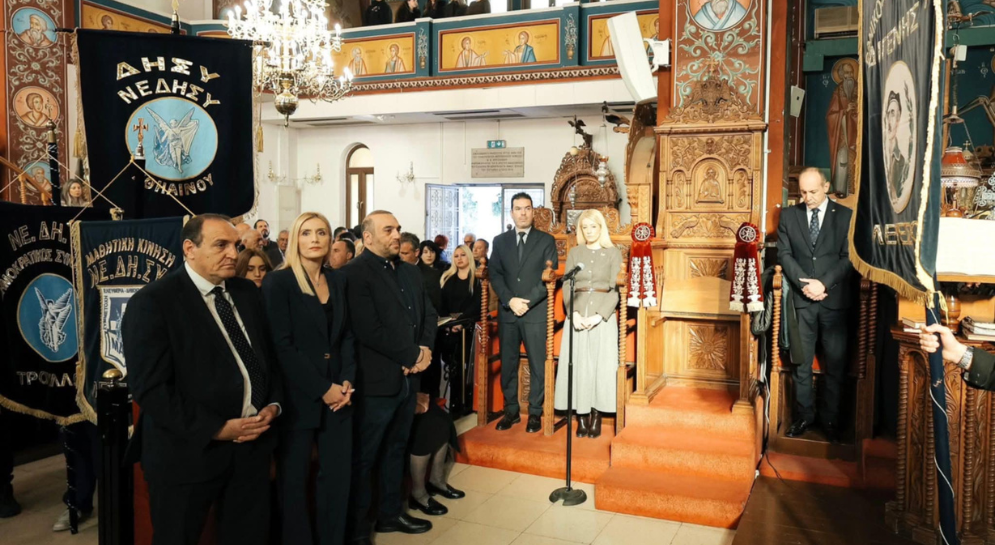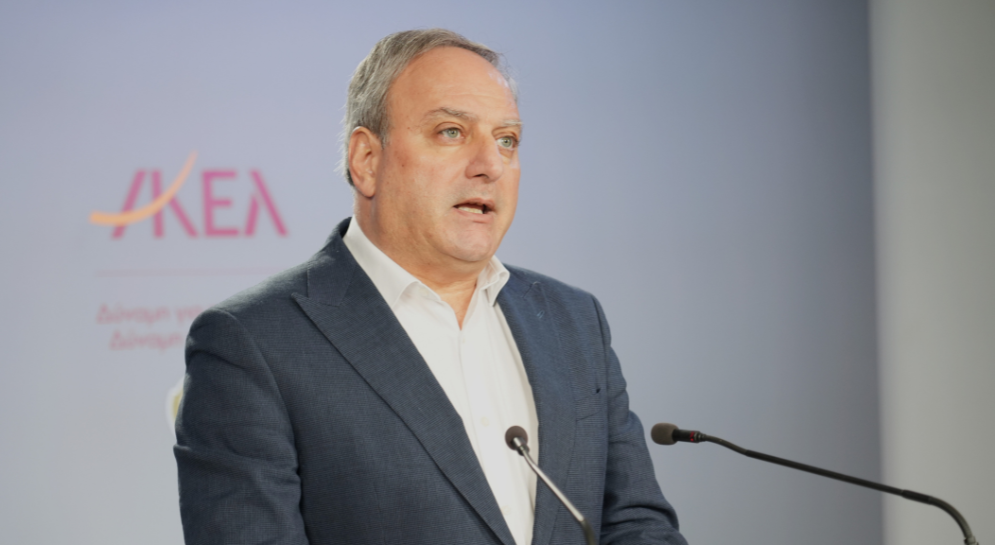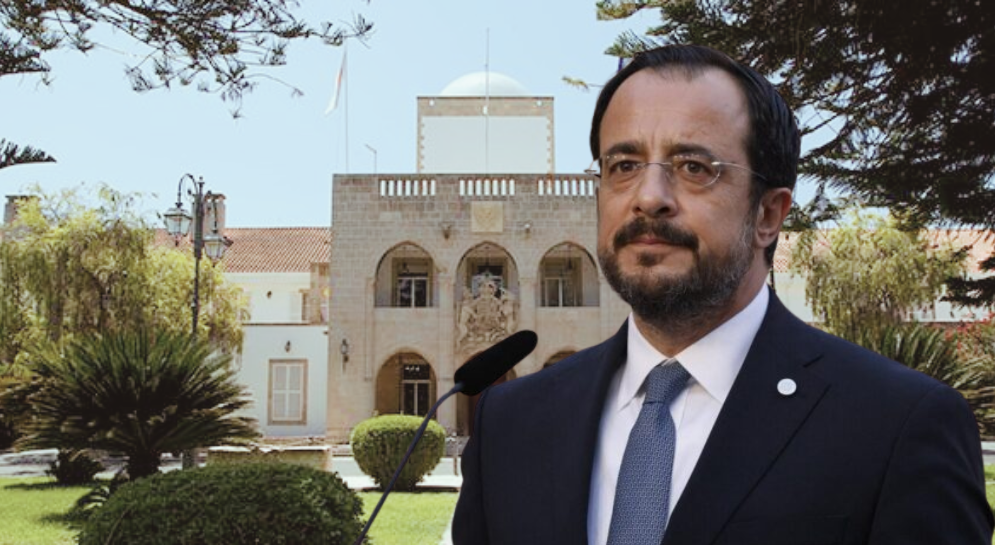
Interview with Toumazos Tsielepis, member of the Secretariat and Political bureau of AKEL
- Our times demand an opening to broader forces
- The day after AKEL’s Statutory Congress brings changes, both within and outside of AKEL
Sunday, 3 December 2023, “Haravgi” newspaper
“The Constitutional Congress has now gone down in the history of the party as a milestone, a landmark and as a springboard for the next century of AKEL’s life and struggles.”
With these words, the General Secretary of AKEL Stefanos Stefanou, closed the proceedings of the admittedly historic Statutory Congress held on 26 November 2023. A Congress with changes in AKEL, but also outside it, since the Party’s opening up to society in general was a central issue. Diversity of opinions, reactions, different opinions, but also harmony, contributed to the success of the Congress.
In an interview with “Haravgi”, the Head of AKEL’s Statutory Committee, Toumazos Tsielepis, talks about the essence of the changes approved, as defined by the needs of our times.
QUESTION: How do you asses the Statutory Congress in general?
TT: I have to say that it was a successful Congress, since the main objective – to proceed with constitutional changes which on the one hand will further expand internal party democracy and on the other hand will make the party more effective and more functional – was achieved.
On a practical level, the whole organisation was impeccable as time was pressing so that the Congress – as the culmination of a long process over many months – was completed in just one day and with strict adherence to democratic procedures. This is something that pleases me very much.
QUESTION: Does AKEL want to convey specific messages through the Congress, given the “Social Alliance” that the party advocates?
TT: These are two different processes, which inevitably converge in the results we want to bring about. Naturally, AKEL wants to send out messages relating to its ability to adapt to today’s conditions without abandoning its ideology and principles, not to hesitate to make changes that life and society itself renders imperative, to modernise itself and, where there is room for improvement, to further expand internal party democracy.
It should be added here – based on the rich historical experience of the party – that every time we have attempted these kinds of changes, we have always had the same result: further growth of the party, an increase in its influence among the popular masses. A striking example is the foundation of AKEL itself in 1941, which was formed not only to overcome its prohibition [by the British colonialists], but also as a necessity of the times.
The then leadership of the Communist Party showed an unprecedented insight at that specific time and decided that the foundation of AKEL should be attempted, precisely so that it could embrace broader strata of the people. The results speak for themselves – the party took off, sharply increasing its influence and winning the electoral contests of that era.
When, by analogy, we attempted something similar in 1990, again life vindicated this choice. It was back then that the USSR was dissolved. Immediately afterwards we had parliamentary elections and AKEL recorded a significant increase in its electoral percentages. I firmly believe that today’s project will also live up to expectations.
QUESTION: Is there an opening to wider forces and who does it address?
TT: There is certainly an opening to wider forces. Today, the objective conditions exist that enable us to attempt a broadening of the party towards broader strata of Cypriot society. Besides, this has been demonstrated in the presidential elections last February. We may not have won the electoral battle, but a clear message has been sent: Even though the independent candidate supported by AKEL, Andreas Mavroyiannis, at the level of political parties was essentially only supported by AKEL, we had an almost marginal result [in the presidential elections]. This means that broader strata of the Cypriot people had sided with us.
It has been proved that there is room for forging cooperation with wider forces beyond the Left, with whom we are united by common goals concerning the effort to solve the Cyprus problem, to address problems in the economy, issues relating to the environment, corruption and entanglement/interwoven interests, issues regarding the development of a socially sensitive and human-centred state and many others.
A significant section of the Cypriot people who have no ideological affinity with AKEL agree with the above goals and aims. The objective conditions therefore exist in the effort to broaden the party and forge a social alliance.
QUESTION: Consequently, the presidential elections have shown in an emphatic way that many people may not be ideologically aligned (in the narrow sense) with AKEL, but they want to hear something else too, so that they will follow and support this effort.
TT: Exactly. Because, as I explained, today there are major issues across the whole spectrum of political and social activity that unite us with broader masses.
QUESTION: Is there anything that AKEL will be planning to do in the immediate future? What are its next steps?
TT: Apart from our work for the upcoming elections [simultaneous European and Local authority], the effort to forge the social alliance is fully underway and I think we will soon have concrete developments.
In conclusion, it would be an omission if I did not thank the party members and all the Congress delegates for their responsible and constructive attitude.
I would particularly like to express my thanks to my colleagues in the Committee on Statutory Affairs: Aristophanes Georgiou, Eleni Mavrou, Haris Karamanos, Stavri Kalopsidiotou and Marios Panagi. Without their valuable assistance, the timely and qualitative completion of this great effort would not have been possible.
“Disagreements are welcome, part of the democratic process”
Asked whether there were dissenting opinions within the democratic process of the Congress and what this meant for the process itself, but also with regards the substance, Toumazos Tsielepis said that there were of course different opinions expressed and this was expected and quite natural.
When you attempt significant changes, he stressed, there will always be an opposing view, based on some logic and reasoning. “The opinion of comrades who disagreed with one or the other or even with several of the proposed changes is fully respected.
The essential thing is that it was a completely democratic process of which the Congress was the culmination. It was preceded by a debate in the party leadership organs, the proposal went to the grassroots Party Base Organisations and we received proposals for amendments, many of which we adopted and ended up approving the changes by a large majority.
We now have amended Statutes, which I am sure we will all respect, whether we agreed or disagreed with the changes made, precisely because they were made through a completely democratic process,” he concluded.

Tsielepis




